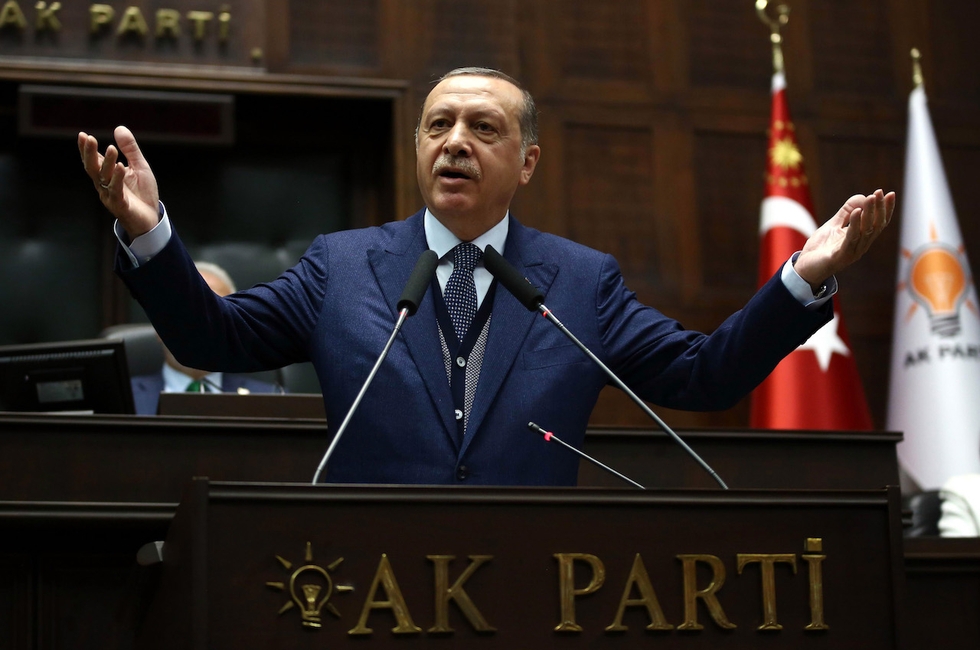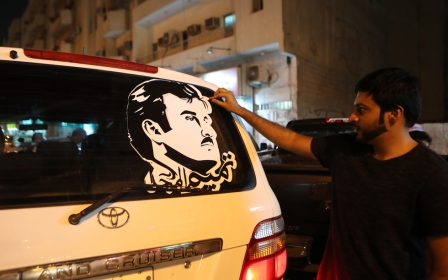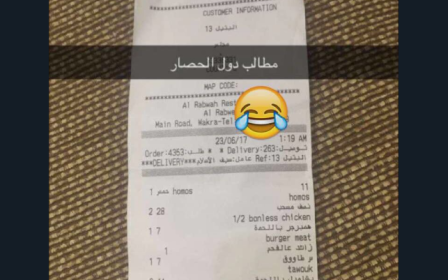Erdogan says Saudi-led ultimatum on Qatar 'against international law'

Turkish President Recep Tayyip Erdogan on Sunday welcomed Qatar's dismissal of a sweeping list of demands from Saudi Arabia and its allies in an escalating crisis and said the ultimatum was "against international law".
"We welcome [Qatar's position] because we consider the 13-point list against international law," Erdogan was quoted as saying by the state-run Anadolu news agency.
Erdogan, who spoke to reporters after morning prayers at an Istanbul mosque, said the demands on its embattled regional ally Qatar had gone "too far".
"What we are talking about here is an attack on the sovereign rights of a state," he said.
"There cannot be such an attack on countries' sovereignty rights in international law."
Qatar on Saturday denounced the ultimatum as unreasonable and an impingement on the emirate's sovereignty.
READ: Bonfire of vanities: Saudi demands expose fear and loathing of Qatar
Saudi Arabia, Bahrain, the United Arab Emirates and Egypt want Qatar to meet the 13-point ultimatum in return for an end to a nearly three-week-old diplomatic and trade "blockade" of the emirate.
The four Arab governments delivered the demands to Qatar through mediator Kuwait on Thursday, more than two weeks after severing all ties with the emirate and imposing an embargo.
The document, which has not been published but has been widely leaked, includes the closure of Al-Jazeera television, a long-standing source of conflict between Doha and neighbouring countries which accuse it of fomenting regional strife.
Notably, Doha has also been asked to shut a Turkish military base in the emirate.
'Disrespect'
The Turkish parliament passed a bill this month allowing Ankara to send up to several thousand troops to the Turkish base in Qatar.
Almost two dozen Turkish troops also arrived in Qatar as Ankara boosts military support for Doha.
Erdogan on Sunday said demanding the withdrawal of Turkish troops from Qatar was a "disrespect to Turkey".
The Turkish president also repeated an offer to Saudi Arabia to build a military base in the Muslim kingdom, similar to that built in neighbouring Qatar.
That offer was rejected by Riyadh. which said a Turkish military base would not be welcome and "not needed".
"If Saudi Arabia wants us to build a base there, we can take a step in that direction," Erdogan said, adding that Riyadh had not responded to the latest proposal.
He also stood by the defence agreement with Qatar.
"Will we take permission from others when we cooperate on defence with a country? No offence but Turkey is not an ordinary country, it is not an ordinary state," he said.
Since the crisis erupted between Doha and its Gulf neighbours, Erdogan has vowed to back Qatar and rejected the accusations that it supports terrorism.
But Ankara has stopped short of directly criticising Saudi Arabia's actions, merely calling on Riyadh to take a lead role in solving the crisis.
Erdogan on Sunday also said countries which promised to get back weapons supplied to Kurdish YPG fighters in northern Syria were trying to trick Turkey and would eventually realise their mistake.
Ankara was infuriated by a US decision last month to arm the YPG, which Washington sees as a vital ally in the battle against the Islamic State (IS) group in its Syrian stronghold of Raqqa but which Turkey deems an extension of the outlawed Kurdish PKK.
The PKK, designated a terrorist group by the United States, the European Union and Turkey, has been waging an insurgency in southeastern Turkey since the 1980s.
Turkish defence ministry sources said on Thursday the United States had pledged that weapons provided to the YPG would be taken back once IS was defeated.
However, Erdogan appeared to dismiss those assurances, saying Turkey's friends and allies were cooperating with terrorists.
"The ones who think they are tricking Turkey by saying they are going to get back the weapons that are being given to this terrorist organisation will realise that they are making a mistake eventually," he said.
"But it will be too late for them," he added, saying that if violence spilled over Syria's border into Turkey, Ankara would hold to account anyone who supplied arms to the YPG.
"We will make the real owners of those weapons... pay for any bullet that will be fired to our country, for every drop of blood that will be shed," he said.
Erdogan 'unwell'
Erdogan on Sunday said he was in good health after briefly feeling unwell during morning prayers in Istanbul.
The Hurriyet daily said Erdogan received medical attention after "briefly feeling unwell" during prayers at the Mimar Sinan mosque in Istanbul.
Some Turkish media reports said he had briefly fainted inside the mosque, although this was not immediately confirmed.
Erdogan said he had suffered from a blood pressure issue due to a sugar imbalance in the body.
"Thanks to God I recovered quickly. Now I am feeling good and we will continue with our programme," he said, quoted by the state-run Anadolu news agency.
Erdogan said that in the afternoon he would be attending a ceremony in Istanbul of his ruling party to mark the festival celebrating the end of the holy Muslim fasting month of Ramadan.
Muslims for the past month have been required to abstain from eating and drinking between sunrise and sunset.
Erdogan is a pious believer but has continued to follow a full political programme during the fasting month, giving speeches nearly every evening over Ramadan at fast-breaking iftar meals.
The Turkish president, a former semi-professional footballer, projects an image of a strong and vigorous leader who is in good health.
Erdogan, 63, has been in power since 2003, first as prime minister and since 2014 as Turkey's first directly elected president.
New MEE newsletter: Jerusalem Dispatch
Sign up to get the latest insights and analysis on Israel-Palestine, alongside Turkey Unpacked and other MEE newsletters
Middle East Eye delivers independent and unrivalled coverage and analysis of the Middle East, North Africa and beyond. To learn more about republishing this content and the associated fees, please fill out this form. More about MEE can be found here.




